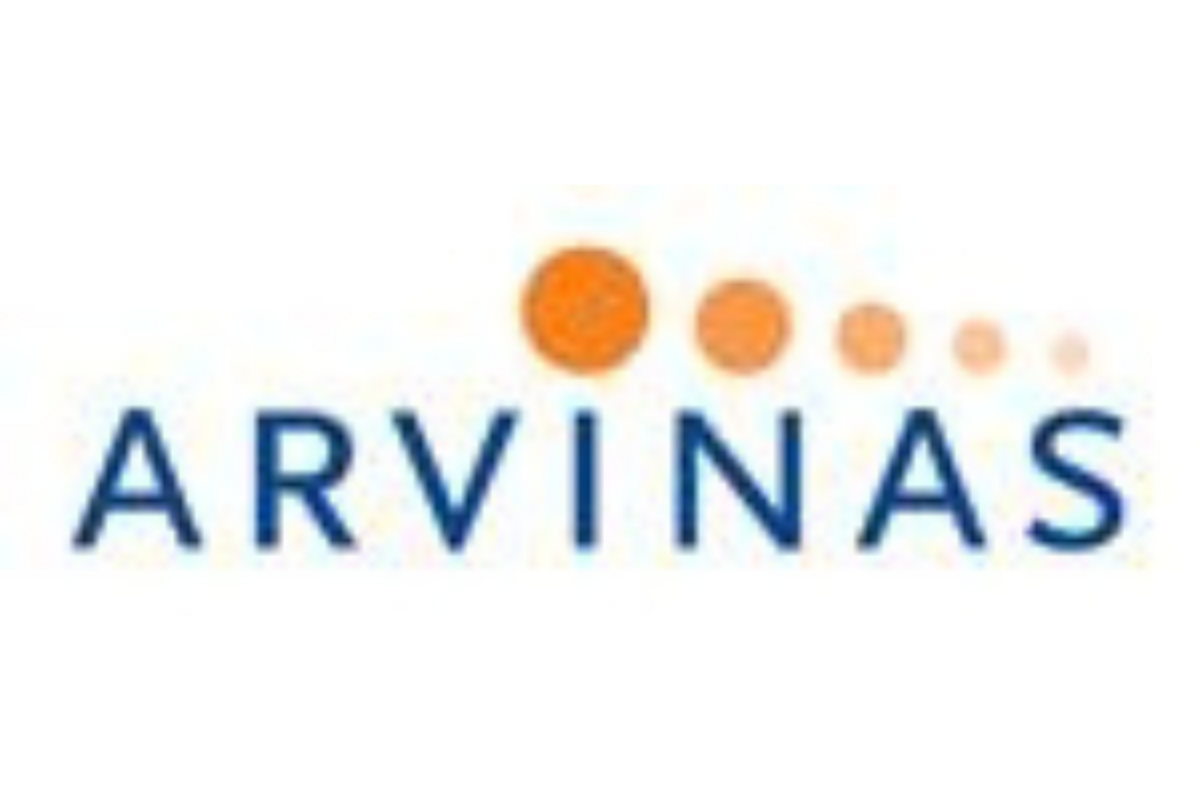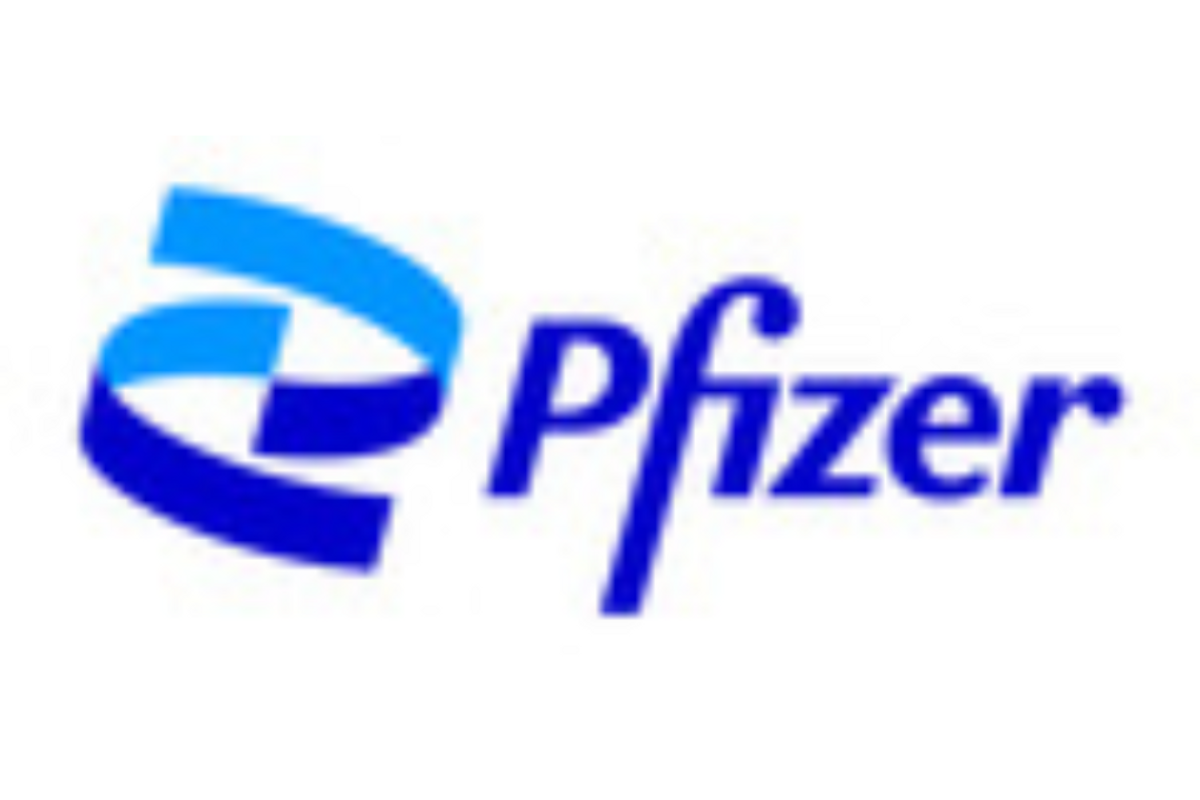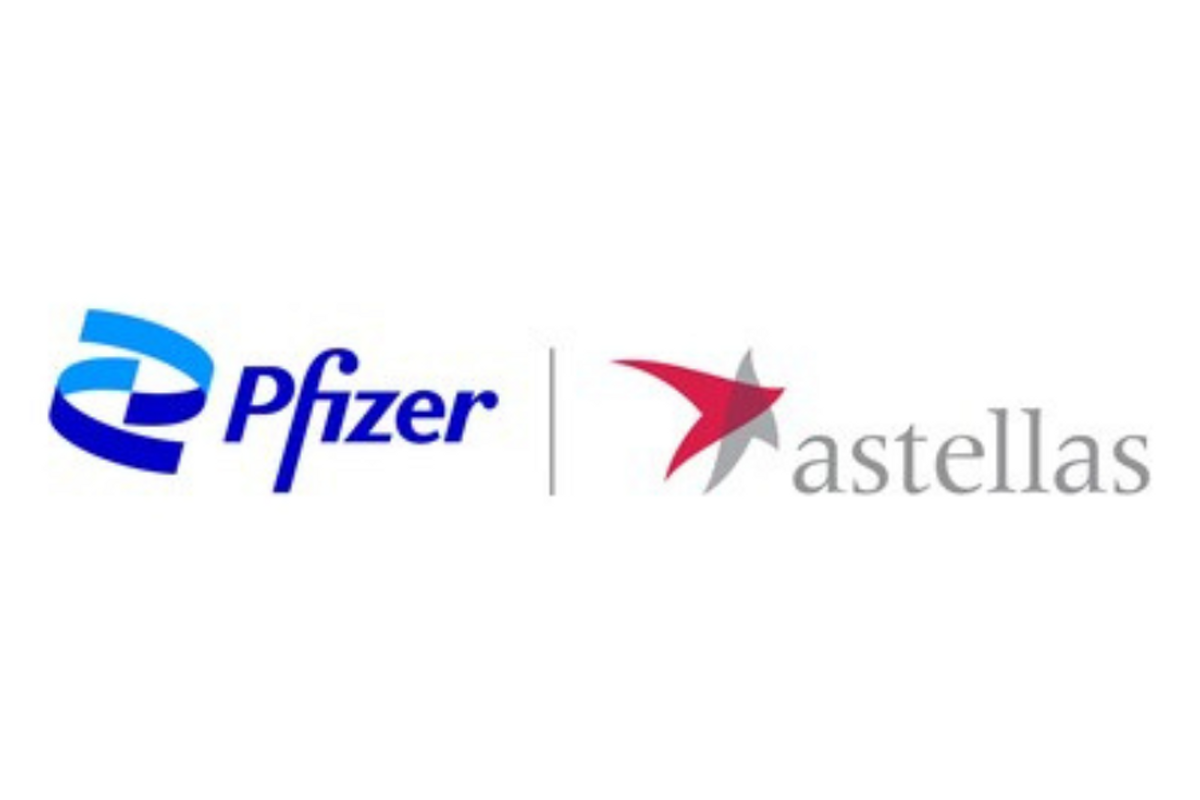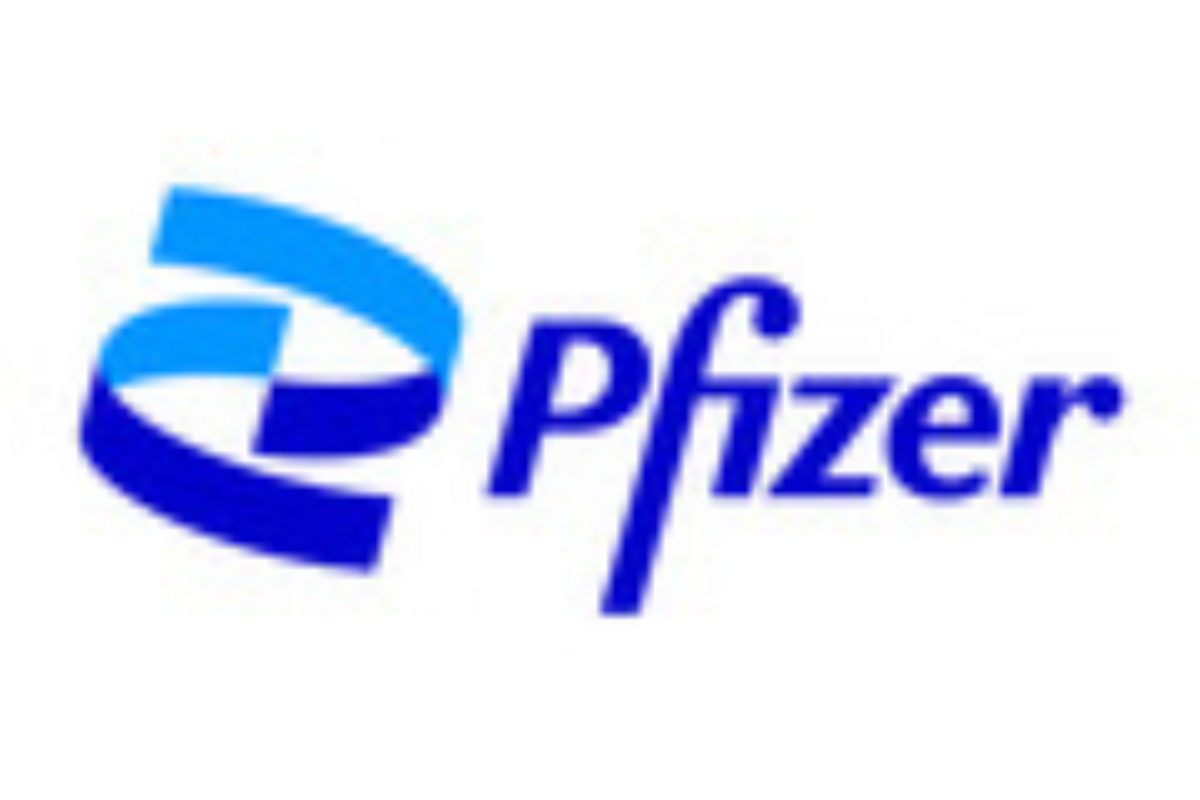Pfizer Inc. (NYSE: PFE) today announced the U.S. Food and Drug Administration (FDA) has granted Fast Track designation to Pfizer's investigational combination therapy for the treatment of non-alcoholic steatohepatitis (NASH) with liver fibrosis: ervogastat (PF-06865571, a diacylglycerol O-acyltransferase 2 inhibitor, or DGAT2i) and clesacostat (PF-05221304, an acetyl-CoA carboxylase inhibitor, or ACCi). Fast Track is a process designed to facilitate the development and expedite the review of new drugs and vaccines intended to treat or prevent serious conditions and address unmet medical need.
The FDA's decision is informed by the results of Pfizer's nonclinical studies and a Phase 2a clinical study of ervogastat/clesacostat, which showed that treatment with ervogastat/clesacostat reduced liver fat with a favorable safety and tolerability profile. These data were recently published in Nature Medicine .
"Receiving Fast Track designation from the FDA reinforces Pfizer's belief in ervogastat/clesacostat as a potential treatment for NASH, a serious, progressive liver disease with no currently approved therapies," said James Rusnak, M.D., Ph.D., Senior Vice President and Chief Development Officer, Internal Medicine and Hospital, Pfizer. "We are proud to be advancing this investigational combination as part of our goal to develop innovative medicines to address some of the world's most widespread health challenges that affect millions of people—including diseases like NASH."
Pfizer is currently studying ervogastat/clesacostat in an ongoing Phase 2 clinical trial evaluating the impact of treatment on resolution of NASH or improvement in liver fibrosis ( NCT04321031 ), expected to complete in 2024. The results of this study, which also includes arms investigating ervogastat as monotherapy, will inform a potential Phase 3 development program.
About NASH
Non-alcoholic steatohepatitis (NASH) is a serious, progressive form of non-alcoholic fatty liver disease (NAFLD) caused by a buildup of fat in the liver and accompanied by inflammation, liver cell damage, and in some cases scarring of the liver. 1,2 Approximately 17 million patients in the U.S. are impacted by NASH (and 3-5% of the global adult population), a number that is predicted to grow significantly over the next 10-15 years due to increases in obesity and Type 2 diabetes prevalence and an aging population. 3,4 NASH is largely unrecognized and underdiagnosed, increasing patients' risk of morbidity, liver events and mortality. 5,6,7 There are currently no FDA- or EMA-approved medications to treat NASH, and Pfizer researchers are working to develop treatments for the disease to fill this significant unmet medical need.
About Ervogastat/Clesacostat
Diacylglycerol O-acyltransferase 2 (DGAT2) and acetyl-CoA carboxylase (ACC) are two key enzymes that regulate lipid metabolism. Inhibitors of ACC and DGAT2 have demonstrated the ability to lower liver fat in patients with non-alcoholic fatty liver disease (NAFLD). 8 Pfizer believes that ervogastat/clesacostat, its investigational DGAT2i/ACCi combination therapy, has the potential to deliver direct improvements in inflammation and fibrosis.
About Pfizer: Breakthroughs That Change Patients' Lives
At Pfizer, we apply science and our global resources to bring therapies to people that extend and significantly improve their lives. We strive to set the standard for quality, safety and value in the discovery, development and manufacture of health care products, including innovative medicines and vaccines. Every day, Pfizer colleagues work across developed and emerging markets to advance wellness, prevention, treatments and cures that challenge the most feared diseases of our time. Consistent with our responsibility as one of the world's premier innovative biopharmaceutical companies, we collaborate with health care providers, governments and local communities to support and expand access to reliable, affordable health care around the world. For more than 170 years, we have worked to make a difference for all who rely on us. We routinely post information that may be important to investors on our website at www.Pfizer.com . In addition, to learn more, please visit us on www.Pfizer.com and follow us on Twitter at @Pfizer and @Pfizer News , LinkedIn , YouTube and like us on Facebook at Facebook.com/Pfizer .
References
1 National Institute of Diabetes and Digestive and Kidney Diseases. Definition and Facts of NAFLD and NASH. Accessed May 14, 2021. https://www.niddk.nih.gov/health-information/liver-disease/nafld-nash/definition-facts .
2 Perumpail, Brandon J et al. "Clinical epidemiology and disease burden of nonalcoholic fatty liver disease." World journal of gastroenterology vol. 23,47 (2017): 8263-8276. doi:10.3748/wjg.v23.i47.8263.
3 Estes C, Razavi H, Loomba, R, Tounossi Z, Sanyal Aj. Modeling the Epidemic of Nonalcoholic Fatty Liver Disease Demonstrates an Exponential Increase in Burden of Disease. Hepatology. 2018;67(1):123-133.
4 Povsic M, Wong OY, Perry R, Bottomley J. A Structured Literature Review of the Epidemiology and Disease Burden of Non-Alcoholic Steatohepatitis (NASH). Adv Ther. 2019;36(7):1574-1594. doi:10.1007/s12325-019-00960-3
5 Machado MV, Cortez-Pinto H. Non-alcoholic fatty liver disease: what the clinician needs to know. World J Gastroenterol. 2014;20(36):12956-12980. doi:10.3748/wjg.v20.i36.12956
6 Rinella ME, Lominadze Z, Loomba R, et al. Practice patterns in NAFLD and NASH: real life differs from published guidelines. Therap Adv Gastroenterol. 2016;9(1):4-12. doi:10.1177/1756283X15611581
7 Kumar R, Priyadarshi RN, Anand U. Non-alcoholic Fatty Liver Disease: Growing Burden, Adverse Outcomes and Associations. J Clin Transl Hepatol. 2020;8(1):76-86. doi: 10.14218/JCTH.2019.00051.
8 Esler WP, Bence KK. Metabolic Targets in Nonalcoholic Fatty Liver Disease. Cellular and molecular gastroenterology and hepatology. 2019;8(2):247-267. doi:10.1016/j.jcmgh.2019.04.007
Disclosure Notice
The information contained in this release is as of May 26, 2022. Pfizer assumes no obligation to update forward-looking statements contained in this release as the result of new information or future events or developments.
This release contains forward-looking information about Pfizer's investigational combination therapy for the treatment of non-alcoholic steatohepatitis with liver fibrosis: ervogastat/clesacostat, including its potential benefits and a potential Phase 3 development program, that involves substantial risks and uncertainties that could cause actual results to differ materially from those expressed or implied by such statements. Risks and uncertainties include, among other things, the uncertainties inherent in research and development, including the ability to meet anticipated clinical endpoints, commencement and/or completion dates for our clinical trials, regulatory submission dates, regulatory approval dates and/or launch dates, as well as the possibility of unfavorable new clinical data and further analyses of existing clinical data; the risk that clinical trial data are subject to differing interpretations and assessments by regulatory authorities; whether regulatory authorities will be satisfied with the design of and results from our clinical studies; whether and when drug applications may be filed in any jurisdictions for ervogastat/clesacostat; whether and when any such applications may be approved by regulatory authorities, which will depend on myriad factors, including making a determination as to whether the product's benefits outweigh its known risks and determination of the product's efficacy and, if approved, whether ervogastat/clesacostat will be commercially successful; decisions by regulatory authorities impacting labeling, manufacturing processes, safety and/or other matters that could affect the availability or commercial potential of ervogastat/clesacostat; the impact of COVID-19 on Pfizer's business, operations and financial results; and competitive developments.
A further description of risks and uncertainties can be found in Pfizer's Annual Report on Form 10-K for the fiscal year ended December 31, 2021 and in its subsequent reports on Form 10-Q, including in the sections thereof captioned "Risk Factors" and "Forward-Looking Information and Factors That May Affect Future Results", as well as in its subsequent reports on Form 8-K, all of which are filed with the U.S. Securities and Exchange Commission and available at www.sec.gov and www.pfizer.com .
View source version on businesswire.com: https://www.businesswire.com/news/home/20220526005017/en/
Media Relations:
212-733-1226
PfizerMediaRelations@pfizer.com
Investor Relations:
212-733-4848
IR@pfizer.com







